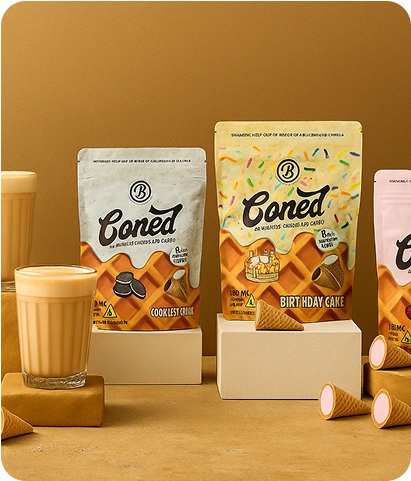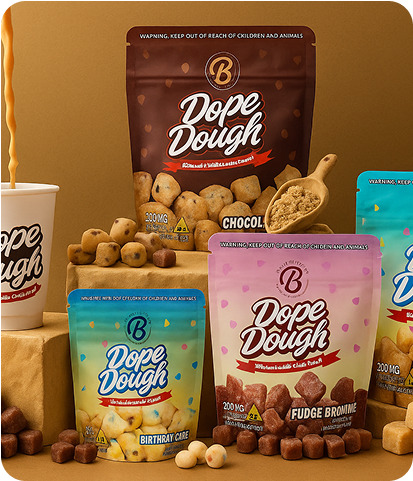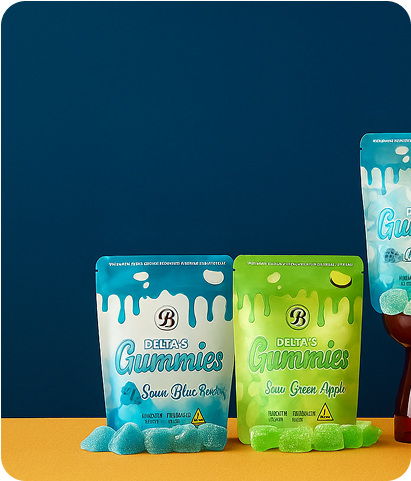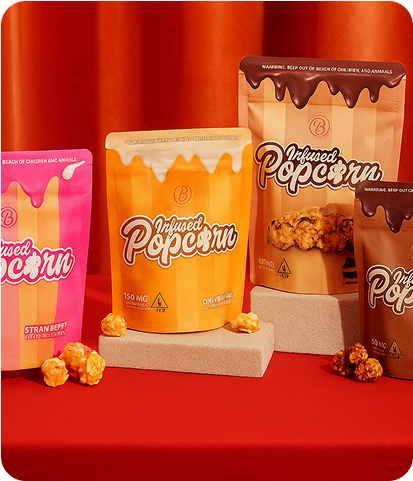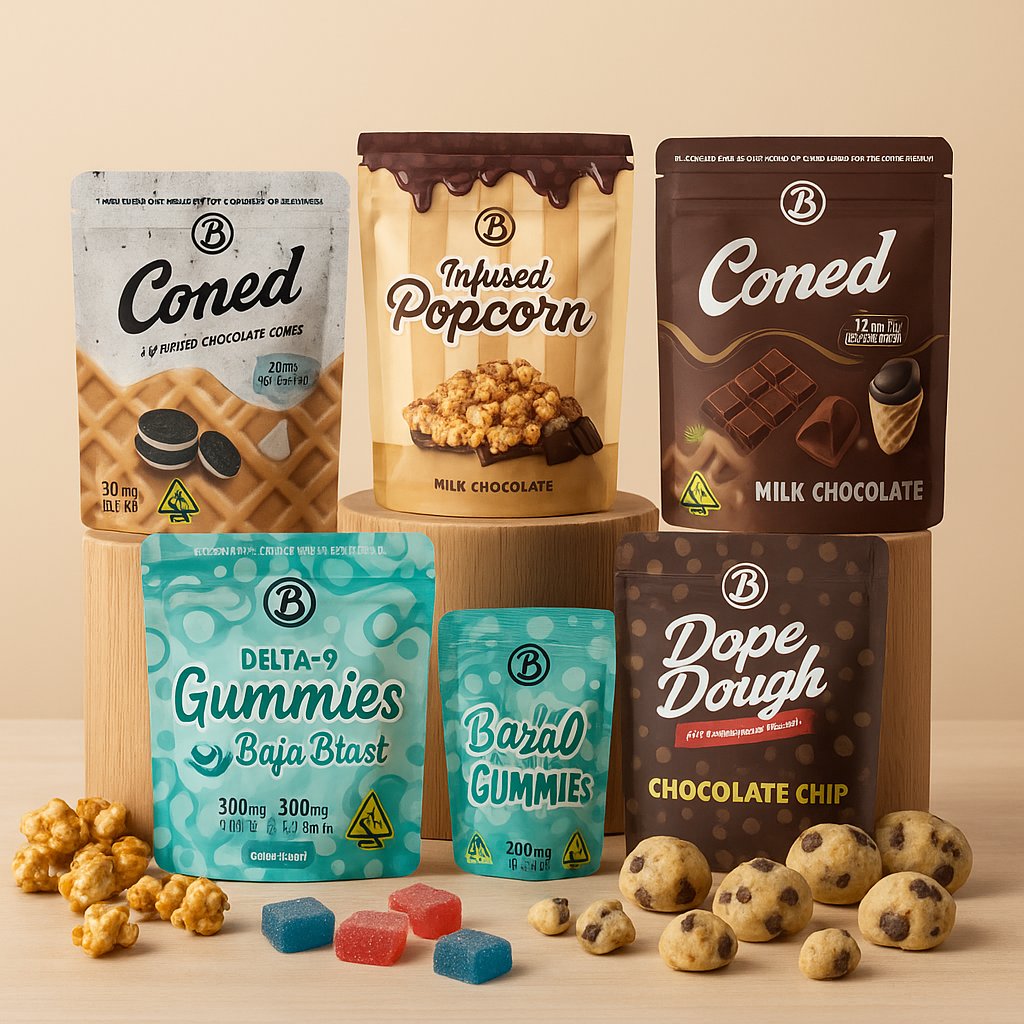
Diving into the world of cannabis is like exploring a hidden treasure trove. This plant is loaded with all sorts of compounds, each adding its unique twist to the mix. As the cannabis scene keeps growing, getting to know the key players, like THCA and THC, isn’t just for the science geeks—it’s for anyone who wants to make the most of their cannabis journey.
Now, at a quick glance, you might think, “Aren’t all these cannabis compounds pretty much the same?” But hold up—when you zoom in on THCA vs THC, you’ll see they’re kind of like the dynamic duo of the cannabis world, sharing some family traits but living totally different lives. This distinction is more than just some fancy science—it’s the kind of knowledge that can shape your entire experience with cannabis.
We’re about to break down everything from what THCA and THC are made of, to how they rock our world, their legal status, and even how they show up in your favorite cannabis products. By the end of this ride, you’ll be navigating the cannabis landscape like a pro, with all the insider info on these two fascinating compounds. So, let’s get this show on the road and dive into the cool, complex world of THCA vs THC.
Chemical Structure
At the heart of the THCA vs. THC conversation is a small but mighty difference in their chemical makeup. THCA is basically THC’s precursor, living in the cannabis plant before heat or light transforms it into the THC we’re more familiar with. This transformation, known as decarboxylation, involves THCA dropping a carboxyl group (COOH). It might sound like a tiny change, but it's a game-changer for how these compounds interact with our body’s endocannabinoid system.
Here's the deal: THCA rocks an extra carboxyl group that THC doesn't have. While this detail might seem trivial, it’s what sets the stage for how each compound plays out in our system. THCA, wearing its carboxyl group, steps back from the psychoactive party, not interacting with the brain’s cannabinoid receptors in the same way THC does. So, despite their close relationship, they have quite different roles in the cannabis experience.
Potency
When we talk about the kick you get from cannabis, THC is usually the star of the show, thanks to its psychoactive effects. THCA, though, is more like the behind-the-scenes crew—it’s there, but you don’t feel its effects directly since it doesn’t cozy up to the brain’s CB1 receptors the same way THC does. The magic happens when THCA converts to THC through decarboxylation, stepping into the spotlight with its psychoactive potential unlocked.
This transformation is crucial, especially when considering the potency of different cannabis products. Those raw cannabis buds are packed with THCA, which doesn’t do much until you heat them up—by smoking, vaping, or cooking—turning THCA into the much-buzzed-about THC. Understanding this process is key for anyone chasing the “high” effects offered by THC.
Psychoactivity
THC’s reputation for delivering that iconic “high”—where everything feels just a bit more euphoric, relaxed, or even surreal—is what really sets it apart. In contrast, THCA isn’t about that life. Since it doesn’t cozy up to the brain’s CB1 receptors the way THC does, it doesn’t pull you into the psychoactive adventure.
This particular characteristic of THCA makes it a player in the cannabis game for those looking to explore the plant's array of experiences without diving into the deep end. It’s seen as a way to stay grounded while still engaging with the world of cannabis, offering a different kind of journey—one that doesn’t alter your state of mind in the traditional sense.
Body Effects
Diving into the effects of THCA and THC on our bodies, it's clear they offer two distinct experiences. THC is the headline-grabber, famous for its ability to alter minds and enhance vibes. It’s all about connecting with the body’s endocannabinoid system, hitting those CB1 and CB2 receptors in ways that can significantly amplify the chill factor, among other sensations.
THCA, meanwhile, stays out of the psychoactive limelight. It doesn’t mess with those receptors directly but is thought to carry its own set of unique effects that could be pretty handy for those looking to keep things mellow without the psychoactive punch. For anyone seeking a more laid-back experience from cannabis, without diving into the deep end, THCA holds some interesting potential.
Potential Uses
So, what's the scoop on what THCA and THC can bring to the party? THC is the go-to for those seeking to turn up the relaxation dial, enhance their sensory experience, or simply kick back in a way that feels a little more intense. It’s about getting that classic cannabis high that can turn a mundane evening into something a bit more special.
On the flip side, THCA offers a different kind of vibe. Without the psychoactive effects, it’s catching eyes for its ability to complement a chill session, potentially making it a great choice for those moments when you’re looking to unwind without the full-on high. Think of it as the difference between wanting to dance in the clouds versus just wanting to feel the grass under your feet—a more grounded, yet still profoundly enjoyable experience.
Regulatory Status
Here’s where things get tricky. THC’s ability to get you high puts it under the microscope, making its legal status a bit of a rollercoaster ride depending on where you are. THCA, skating by without the psychoactive effects, often faces a gentler legal outlook.
This legal dance affects everything from growing these plants to putting products on shelves. It’s a maze of rules that both businesses and consumers need to navigate, highlighting the need to stay sharp on what’s what in the world of cannabis compounds.
Activation State (Decarboxylation)
Decarboxylation might sound super scientific, but it's really just the magic trick that turns THCA into THC, the stuff that gives cannabis its famous kick. Think of it like heating up popcorn – the heat transforms the kernels. In the cannabis world, applying heat or UV light does a similar thing, changing THCA into THC.
Why should you care? Well, understanding this process is like unlocking a new level in your cannabis experience. It lets you tweak how strong your batch is going to be, giving you control over the kind of vibe you're aiming for, whether that's chilling out or something a bit more intense. It's pretty much essential knowledge if you want to get the most out of your greens.
And if you're into making your own edibles or maybe even growing, getting decarboxylation right is crucial. It's what ensures your creations hit just the right note, balancing the THCA and THC to perfection. Mastering this bit of cannabis chemistry can make a huge difference in how your products turn out, making sure they're just what you were aiming for. So yeah, decarboxylation isn't just science talk – it's at the heart of crafting that perfect cannabis experience.
Presence in Cannabis
Last but not least in our THCA vs. THC exploration, let's dive into their presence in cannabis and other products. It's not a straightforward affair – these compounds don't just show up in set amounts. The levels of THCA and THC can really swing around depending on a few key factors: the age of the cannabis, how it's been grown, and the post-harvest process. Typically, if you've got fresh cannabis, you're looking at a higher concentration of THCA. But introduce some heat – like when you're smoking, vaping, or cooking it – and that's when THCA starts to transform into THC.
This is precisely why being clear about what's in your cannabis products is such a big deal. Accurate labeling and thorough testing matter more than ever. They're your best bet for knowing exactly what you're getting, helping you choose the right stuff for your vibe or needs. Whether you're after a specific experience or just exploring, keeping an eye on the THCA and THC content is key to tailoring your cannabis journey.
Go Beyond THCA vs. THC: Embrace the Baked Bags Experience!
Boom – there you have it: 8 key differences between THCA and THC. Looks like these two cannabinoids are more than just elements on the periodic table of cannabis – they're the VIPs, each rocking its own set of traits, vibes, and possible uses.
Diving into their chemical makeup, legal standing, and how they show up in our favorite greens, it's clear: knowing what sets them apart is everything for anyone who's more than just casually interested in cannabis. It's about crafting those perfect moments, whether you're in it for the chill, the thrill, or the wellness journey. And hey, when we talk premium experiences, we're not tossing around just any names here.
Time to spotlight a heavyweight in the THC world, making waves from the sunny vibes of California – us, Baked Bags. We're here to flip the script on edibles and pre-rolls, curating experiences that shout innovation, scream quality, and whisper creativity into every bite and puff.
Imagine this: Delta-8-infused ice cream cones that don't just cool you down but lift you up, THCA pre-rolls that are just the right size, perfectly rolled, and come with a lab seal of approval, cookie dough that's as scrumptious as it is safe, and gummies that marry flavor with a gentle kick. Our lineup's built to please every palate and preference.
With our goodies legally rocking in 35 states, we're not just playing the game; we're setting the pace in the Delta edibles scene. Every treat we introduce is a badge of our passion for high-grade THC delights, pushing boundaries and setting new highs (pun intended) in what edibles can be.
Eager to step out of the THCA vs. THC box and into something bigger? Baked Bags is your ticket to an epic journey of taste, quality, and unmatched experiences. Take our word for it or better yet, dive in and see for yourself. Welcome to the bold world of Baked Bags – where extraordinary journeys begin and never really end.


